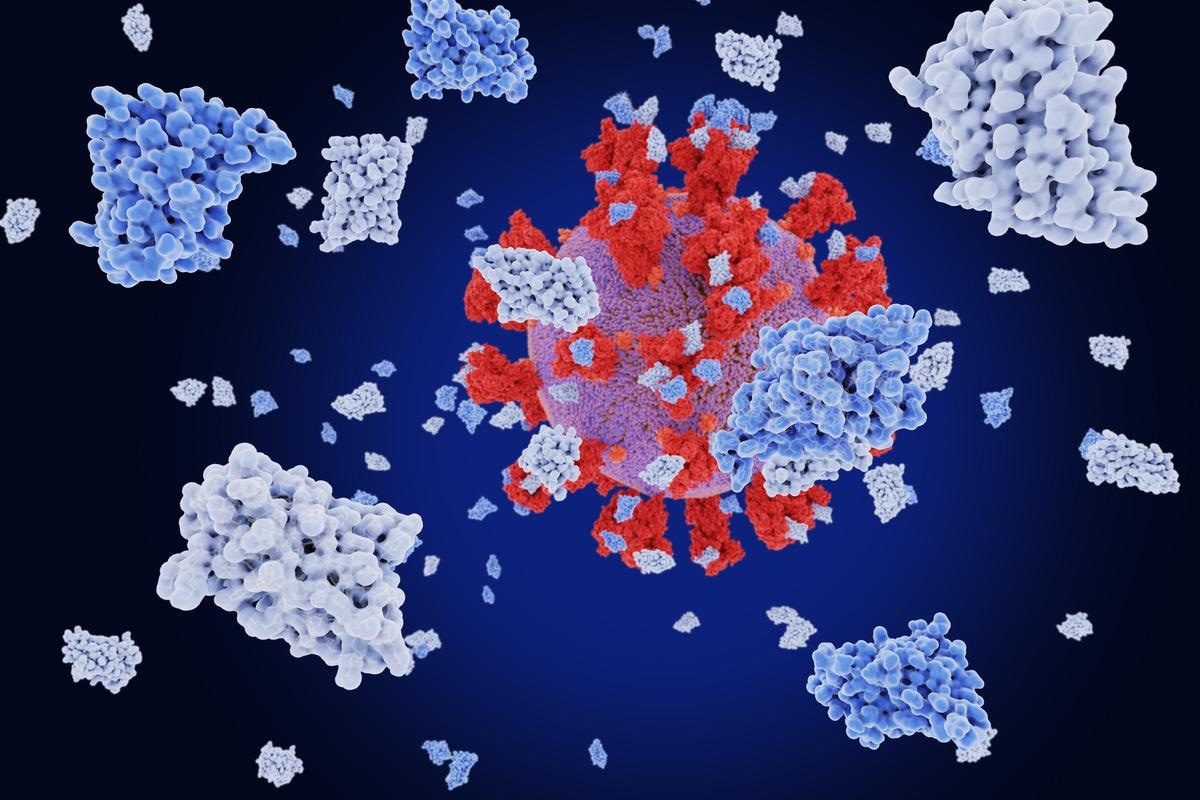It is known that severe acute respiratory syndrome coronavirus 2 (SARS-CoV-2) – the causative microbe for coronavirus disease 19 (COVID-19), is highly contagious.
Although vaccines are effective in mitigating the outbreak, vaccine escape and vaccine breakthroughs limit their efficacy. Neutralizing antibodies against SARS-CoV-2 are therapeutic options for COVID-19 patients.
 Study: A SARS-CoV-2 nanobody that can bind to the RBD region may be used for treatment in COVID-19 in animals. Image Credit: Juan Gaertner/Shutterstock
Study: A SARS-CoV-2 nanobody that can bind to the RBD region may be used for treatment in COVID-19 in animals. Image Credit: Juan Gaertner/Shutterstock
Background
There have been rising concerns that SARS-CoV-2 may spread to local wild animals, which may set up a second host for the virus. Reversal of zoonotic infections are possible, owing to the likelihood of interspecies transmission from humans.
The spike (S) protein of the SARS-CoV-2 facilitates its entry into the host cells. Therapeutic antibody preparation targets the S protein of the virus. It has been proposed that nanobodies harbor the potential to prevent SARS-CoV-2 pseudoviruses from entering cells.
The study
A recent study published in Research in Veterinary Science assessed the potential of a nanobody – directly prepared by binding to SARS-CoV-2 spike receptor-binding domain (RBD) protein, in the treatment of COVID-19.
Results
For this study, nanobodies that could bind to the SARS-CoV-2 spike RBD protein were obtained. It was noted that these nanobodies could simultaneously bind to the SARS-CoV-2 S protein and RBD protein. Thereafter, the nanobodies were validated for their neutralization potential and for their action against pseudovirus infestation.
The methodology involved screening as well as sequencing of the specific nanobodies. Numerous nanobody sequences were produced and amplified. The proteins were expressed and the nanobodies were validated.
It was found that nanobodies bind to both SARS-CoV-2 spike RBD and SARS-CoV-2 S proteins. SARS-CoV-2 spike RBD protein exhibited greater affinity to the nanobodies compared to the SARS-CoV-2 S protein. It was also noted that the nanobodies have a neutralizing effect.
Nanobodies were found to inhibit cellular invasion by pseudoviruses. Additionally, the results showed that the inhibitory effect enhanced with higher concentrations of nanobodies. The rate of pseudovirus inhibition detected was 85% with a nanobody concentration of 100mg.
Discussion
Nanobodies are potential immunotherapeutic reagents that offer benefits like easy modification, strong nano-affinity, and easy tissue penetration. High affinity to antigens and specific binding to antigens make nanobodies more advantageous than traditional antibodies. In addition, the production cost for nanobody preparation is low as they can be expressed in the prokaryotic expression system.
Owing to their small size – 15KDa, nanobodies can easily penetrate the lung tissue, and therefore, have great potential as a treatment option for COVID-19.
Neutralizing antibodies can be deemed a promising new modality to fight COVID-19. Nanobodies can efficiently bind to the RBD neutralizing site, thus inhibiting the viral entry into the host cells.
The present study demonstrated that certain nanobodies can directly bind to both the S protein and the RBD protein of SARS-CoV-2. Nevertheless, they show a higher affinity to the SARS-CoV-2 spike RBD without being affected by the other structures on the S protein.
Moreover, nanobody production is inexpensive and they can be prepared in large quantities. Thus, they can be a feasible modality for COVID-19 treatment.
Conclusion
Nanobodies may be a highly potent and viable COVID-19 treatment option, especially in the current pandemic situation.